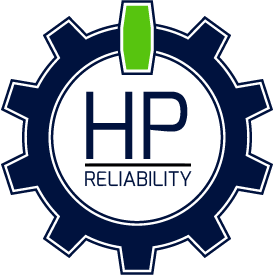RCM Principles with Nancy Regan
In this episode, we covered:
- What Reliability-Centered Maintenance (RCM) is
- The 7 Principles of RCM
- How to identify consequences (safety, environmental, operational, and non-operational)
- PdM, CBM, FMEA, FMECA: Are these all related to RCM?
- How are we successful with processes such as maintenance task analysis or PM Optimization, etc. if we don’t have these same set of principles that build off of each other?
- The principle that organizations tend to struggle with the most
- The principle that makes the biggest impact on a successful RCM analysis
- Examples of ideal reliability function statements
- What is the right level of detail to Failure Mode? Is Object Damage Cause, Part Problem Cause, etc. enough?
- And much more!
The companies who have an asset management program can t be successful without implementing RCM in their facilities. They will face failures all the time and if they don t have any proactive process like RCM in place, they are never going to come out of fixing things again and again. So, what is RCM? RCM is one of the most efficient and effective proactive maintenance processes that is considered one of the most powerful asset management tools. One of the coolest things about RCM is that you can apply it to any industry or your daily life. It has one of the most diverse applications in the world.
Now, the RCM process can be applied to the whole assets or any part or phase you may choose to implement it on. In simple words, you are developing a proactive maintenance plan that incorporates every single activity that you can perform. Although RCM allows you to devise solutions that are far beyond the maintenance aspect of things, most of the organizations don t think about the diversity of RCM principle. They just focus on running a successful asset management program when they can take advantage of RCM in every task they perform on a daily basis.
Then a lot of organizations think that Failure modes and effects analysis or FMEA, Failure modes effects and criticality analysis A.K.A FMECA and RCM are different things. They don t understand that they are parts of RCM s seven principles. When they are doing condition-based maintenance, they are implementing the principles of RCM that have been there for a long time. The seven principles of RCM are Functions, Function Failures, Failure Modes, Failure Effects, Failure Consequences, Proactive Maintenance and Intervals, and Default Strategies. So, when you are doing FMEA, FMECA, or CBM, you are actually doing parts of RCM which is a whole bigger process.
The first step is the functions that incorporates all the tasks that you have to perform to keep your assets up and running. There will be problems due to which you won t be able to perform all those functions that you identified in the early stages. Each function has some failure mode designed against it. You have to just identify the failure mode. Where there are functions, there will be function failure too. You have to find the reason behind those failures and then analyze the effects that those failures might have on the assets.
These first five steps cover all the aspects of other techniques that are used in the organizations. After this, you need to come up with solutions that will allow you to stop those failures from occurring in the first place. That means less downtime and less cost. There are always multiple strategies against every failure mode. You have to implement the best ones by practicing and experimenting. You have to come up with a well thought-out plan to successfully implement RCM because that is where most organizations fail. You need to preplan the detailed process and the people who can implement them.
If you liked this, you might be interested to check our other episodes with Nancy Regan.
See Related Episodes:
- 05 What is Reliability Centered Maintenance?
- 08 Using Review RCM to Improve Plant Performance
- 47 RCM Re-engineered with James Reyes-Picknell & Jesus Sifonte
- 117 – RCM with Nancy Regan
Eruditio Links:
- Eruditio
- HP Reliability
- A Smarter Way of Preventative Maintenance Free eBook
- inspired Blended Learning (iBL®)
- James Kovacevic s LinkedIn
Nancy Regan Links:
- Nancy Regan LinkedIn
- RCMTrainingOnline.com
- SMRP 26th Annual Conference, (Topic: Want Reliable Assets? If only our equipment could talk…)
- Recommended Resources:
Rooted In Reliability podcast is a proud member of Reliability.fm network. We encourage you to please rate and review this podcast on iTunes and Stitcher. It ensures the podcast stays relevant and is easy to find by like-minded professionals. It is only with your ratings and reviews that the Rooted In Reliability podcast can continue to grow. Thank you for providing the small but critical support for the Rooted In Reliability podcast!
The post 131 – RCM Principles with Nancy Regan appeared first on Accendo Reliability.

